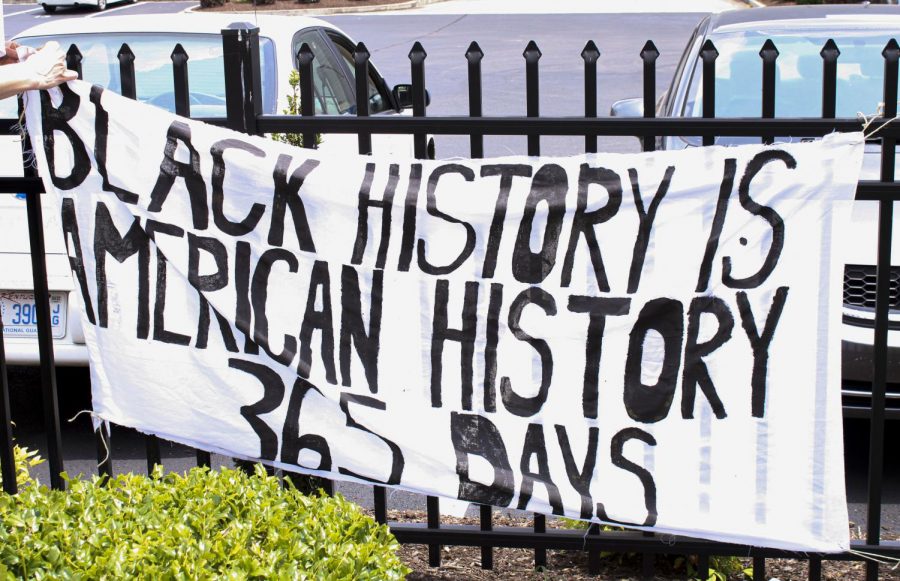Black members of the WKU community share their thoughts on Juneteenth
To celebrate Juneteenth becoming a national holiday, local vendors and keynote speakers gathered at SOKY Marketplace.
June 19, 2021
On the first national holiday to mark Juneteenth – the day in 1865 that slaves in Texas finally learned they had been freed through the Emancipation Proclamation – there were a variety of opinions among Black members of the WKU family.
Ebony Dunn, a fashion merchandising major from Louisville, said Juneteenth becoming a national holiday is long overdue.
“I’m excited that it’s finally getting recognized as an actual holiday,” Dunn said. “Hopefully, the next step is school districts across the country can teach the importance of Juneteenth in the curriculums of Black History Month.”
Dunn’s family typically hosts a large cookout to celebrate Juneteenth. “I always looked at Juneteenth as a holiday when I learned about it a few years ago,” Dunn said.
Joyce Augustine, a journalism major from Louisville, said the holiday is a sign of hope for more changes in the future.
“I think Juneteenth becoming a holiday after everything the Black community went through and fought for the last year is the right thing,” Augustine said. “It shows us and future generations that there’s nothing wrong with standing up for what you believe in and taking a stand against injustice.”
Not everyone agrees.
Angela Oliver, a WKU alumna who lives in Atlanta, feels the quick and nearly unanimous passage of the bill in Congress to make Juneteenth a national holiday reeks of hypocrisy.
She noted that it comes at a time when some of the same politicians who supported creating the Juneteenth holiday are trying to ban the teaching of critical race theory, which emphasizes the role slavery played in shaping the United States.
“It’s like we have to fight so hard for things that actually will sustain us as Black people,” said Oliver, who as a student worked on the College Heights Herald. “They haven’t moved on any bills as far as police brutality, or equity in housing.”
Oliver said she is concerned that businesses will try to commercialize an important milestone for the Black community, now that it is a holiday.
“We’re going to see Target or Walmart or whomever, throw in Juneteenth on a t-shirt, even though the CEOs are at the same time contributing to campaigns that are blatantly racist, anti-Black and anti-deliberation,” Oliver said. “As people and companies capitalize off of it, the real history will just get lost, because everyone will want to take part in this celebration.”
Ryan Dearbone sees the new holiday as a sign of progress.
Dearbone, a WKU donor experience officer and president of the Warren County NAACP, said Juneteenth and Fourth of July don’t need to be celebrated exclusively.
“You can celebrate the Fourth of July for America’s independence, and then you can also celebrate Juneteenth, for the freedom and emancipation of African Americans who are a part of this country,” Dearbone said. “We can celebrate them together, and in a lot of ways, African Americans have celebrated Independence Day and Juneteenth for years.”
The speed that the bill was passed took Dearbone by surprise, he said.
“That tells me in a lot of ways that there are some people in higher positions in our government who don’t understand the importance of the day like this,” Dearbone said. “It’s a date that we all can and should be able to celebrate.”
This passing of this bill is not “end game,” Dearbone said there is still progress to be made.
“[Juneteenth] was a great day for African Americans to be emancipated and to be freed from slavery,” Dearbone said. ”It’s a great thing for the country because black people helped to build a lot of this country and to contribute to the country.”
Digital News Editor Debra Murray can be reached at [email protected]. Follow her on Twitter @debramurrayy

























